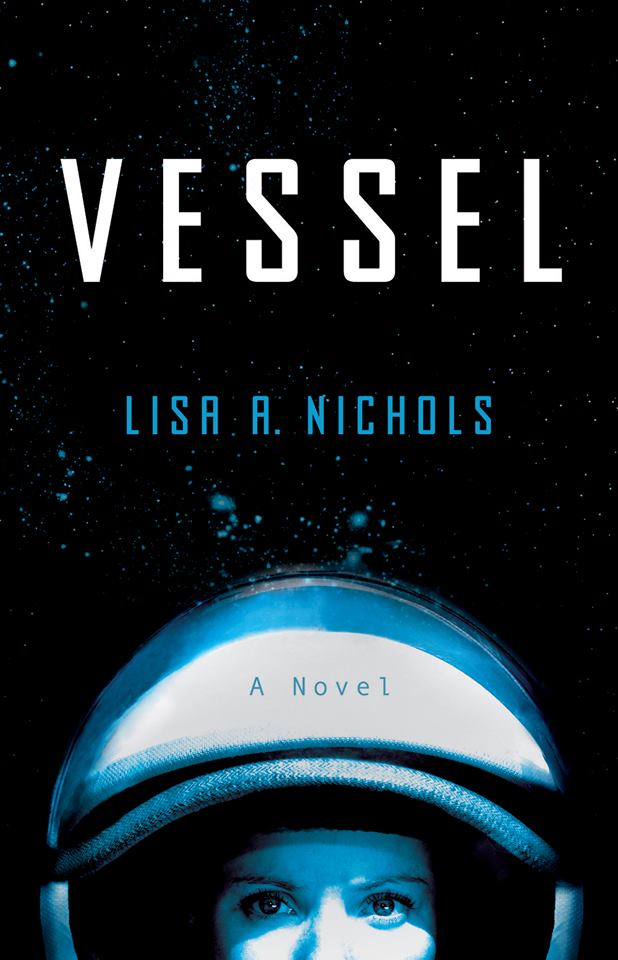As the reviews for Vessel come in, I’m so, so happy to see many of them talk about the psychological elements of the story. That particular aspect of Catherine’s character was important to me, and one I wanted to get as accurate as possible. And… it’s one that I have a great deal of personal experience with. I debated talking about this, but I’m generally very open about it, and I feel strongly about being open about it. So… hi. I’m your friendly neighborhood writer, and I’m mentally ill. It’s something I’ve struggled with for most of my life, and PTSD is on my list of diagnoses. (I may address some of the others in the future, because hooboy, writing when you have ADHD is an experience.)
So when I was initially developing Catherine’s character, I wanted to think about how the trauma she has gone through affected her, and how she might cope with the aftermath. I also wanted to explore the line between the symptoms and events she experiences as a direct result of her PTSD, and the things she experiences that she doesn’t believe are the result of PTSD. It can be incredibly frustrating to know something about your own mind, and to be disbelieved. It’s maddening. That said, sometimes when we’re coping with mental illness symptoms, we may think we know our own minds but don’t. So how do you tell the difference? How much of what you think you know is actually true?
It’s one of the core questions in Vessel, and frankly, in my day-to-day life. It’s easy to say that I’m having a bad day because I’m a terrible person who has done terrible things—when in fact, I might be having a bad day because my unhelpful brain is reliving some aspect of my past and making me think I’m a terrible person. Not to mention that it’s often easy to say, “Bah, I’m not mentally ill, I’m just a terrible person. What happened to me wasn’t that bad. Other people had it worse.” (Catherine does this quite a lot. So do I.) Ironically, minimizing the experienced trauma is a hallmark symptom of PTSD. Mental illness is the only category of illness I can think of that seems to actively work to convince the sufferer that it isn’t there and isn’t real.
Anyway, to put it another way: the brain can be a real pain in the ass sometimes.
And when it isn’t busy being a pain, it sometimes isn’t very subtle. I’ve heard it said that writers always put some aspect of themselves into their work, but I’m certain it’s not always as flamingly obvious as it is with me. As I was writing Vessel, I realized that every novel I have ever written (I think Vessel is #8, depending on how I count), and every novel I have on my mental to-write list, not to mention the one that I am writing right at this moment, all have, at their core, at least one woman who has faced some sort of trauma and is trying to recover. You should have seen the look on my face when I realized it. I sort of wanted to kick my subconscious for being so bad at subtlety. I complained to a friend, “It’s supposed to be my subconscious!”
None of these characters have had the same sort of trauma as me—to be honest, the trauma in my past is mundane and garden-variety, and not anything I’d want to write a book about. Since I love writing in larger-than-life settings and situations, the challenges my characters face are likewise larger-than-life. Here’s the thing, though. I may not have gone to prison for hacking into government servers like Gabe, one of the heroines of my current work-in-progress, but I understand the fears and emotional landmines she has to deal with as she tries to move on with her life. It’s a case of “writing what you know,” and I think, it’s the truest core of what that old writing saw means. “Write what you know” doesn’t mean that because I’m a middle-aged woman in the midwest who’s spent most of her working life in offices, that all I can write about are middle-aged women in the midwest who work in offices. It’s a case of finding parallels to your own experience, ways for you to get into writing a character that brings that character to life, gives them that spark of reality.
As I said at the beginning, I try to be open about my own experiences here. Although things are certainly better than they were when I was first diagnosed with depression, there are still a lot of misconceptions about mental illness out there, a lot of stigma, and a loooooot of bad media representation. I think I realize now: that’s also the reason it’s so much a part of my work, in stories that otherwise aren’t about mental illness. Because we’re out here, and although our malfunctioning brains are obviously a major part of our life experiences, they aren’t what defines us. Catherine’s PTSD isn’t all that she is. Gabe’s PTSD isn’t all that she is. My PTSD isn’t all that I am. We’re out here (or in books, I suppose), living our lives as best we can, just like everyone else. And that’s why I write so much about trauma. To show that we can live our lives despite what’s happened to us—and to show it not just to people who haven’t lived it, but to show it to people who are living it and aren’t certain there’s a way out of the depths.


